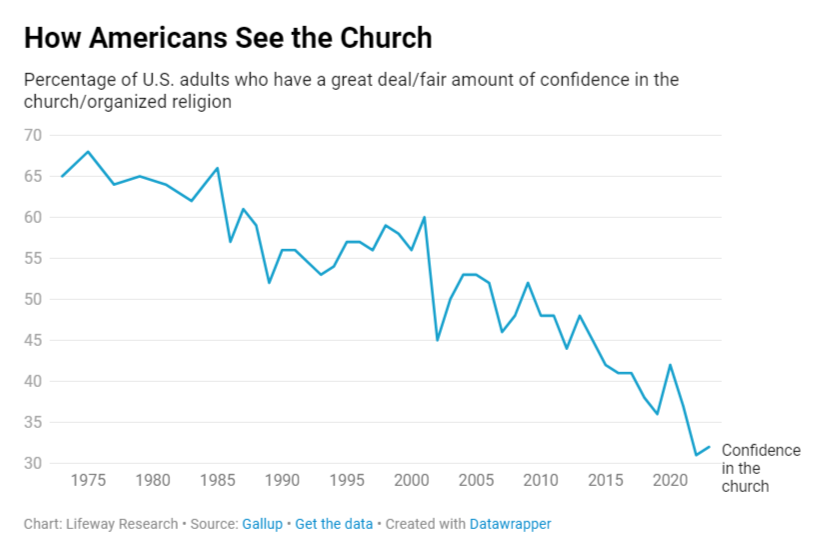
Hard to believe I once had a phone attached to a wall, and when it rang, I picked it up without knowing who was calling.
THREE THINGS FOR YOU TO ASK YOURSELF
Have you been approaching your relationships transactionally? (i.e., “I’ll do this for you but only if you do this for me.”)
Have you been approaching your work transactionally? (i.e., “I’ll do this just so I’ll get money/status/prestige.”)
Have you been dealing with your family transactionally? (i.e., “I sacrificed for you so now you have to do this thing for me in return.”)
If so, how’s that going for ya?
Mark Manson
Get married, be happy
The common operating assumption seems to be that professional life is at the core of life and that marriage would be something nice to add on top sometime down the road. According to an analysis of recent survey data by the University of Virginia professor Brad Wilcox, 75 percent of adults ages 18 to 40 said that making a good living was crucial to fulfillment in life while only 32 percent thought that marriage was crucial to fulfillment. In a Pew Research Center survey, 88 percent of parents said it was “extremely or very” important for their kids to be financially independent, while only 21 percent said it was “extremely or very” important for their kids to marry.
There are mountains of evidence to show that intimate relationships, not career, are at the core of life, and those intimate relationships will have a downstream effect on everything else you do.
…the University of Chicago economist Sam Peltzman published a study in which he found that marriage was “the most important differentiator” between happy and unhappy people. Married people are 30 points happier than the unmarried. Income contributes to happiness, too, but not as much.
David Brooks
God as person
God expresses nothing less than God-ly feelings. David Lamb has recently written about seven of God’s emotions: yes, hatred and wrath, along with jealousy, sorrow, joy, compassion, and love. Each of these terms could be given various translations, but what needs to be seen is that God is not distant, emotion-less, unfeeling, calculating. God is a person, God has relations, God responds to us as we respond to God. That’s step one. Step two is this: We are made in God’s image. If Christ is the perfect image of God, and if Jesus is filled with empathies and compassions and tears and joys and love, then we too are emotional, feeling-shaped images of God.
Scot McKnight
The Quest for Power
The quest for power reveals more about character and sin than any measure I know. Nothing comes closer to wanting to be God than a yearning for control, to be in charge, and to eliminate anything and anyone that gets in your way. Absolute power corrupts absolutely, as a famous line goes, and the more powerful a person becomes, or even desire to become, the less that person’s morality looks like Christ. Power distorts perception, especially self-perception, and it corrupts one’s following of Jesus. Even those opposing those questing for power can be seduced into the power trap. Narcissists cannot avoid competing for power, and neither can they avoid retaliating against those who check their power. They can’t stop themselves because their aim is power.
Justice
…the word for “justice” in the Bible is the same word as “righteousness.” This overlap shows that the central concern of biblical justice was not “getting what you deserve”; rather, it was making right what was done wrong, restoring what had been destroyed, healing the wounds of an offensive act. It was about bringing balance and wholeness back to the community, which is why you often see scales as an icon for justice.
Shane Claiborne
Sinners saved by grace
…it is common to think that Christians are merely sinners saved by grace – depraved worms ever deserving of the deity’s dumpster of destruction – who are graciously granted a share in eternal life, that should not be our conclusion. Instead, we should think of ourselves as saints who sometimes sin.[2] What defines us is not who were once were apart from Jesus, but who we are being conformed to the image of the Son (Rom 8:29) and who we shall be revealed to be as the glorious children of God (Rom 8:19). That is because we are no longer who we once were, nor will we ever be that person again. That old self is dead, crucified, buried, and raised into a new person.
True, sin might nip at my heals, try draw me back to a life I left behind, but sin is no longer our true master, and sin is no longer the source of our true identity. Holiness is not simply about trying harder; yes, it takes effort, but it is more than that. It is about faith in God’s holy power, a power that makes the unclean clean, turns the profane into something sacred, calls and consecrates us into a Christ-shaped way of being human. Holiness happens when I draw myself nearer to a Holy God and God’s Spirit is drawn into my very fabric of my being. It is in communion with God that we are consecrated and committed to a holy pattern of existence that is set apart from the ways of this world.
Michael Bird
God’s presence
At the center of the prophets’ ministry is their awareness of the transcendent God who is above all things and yet within all things. God’s presence cuts across all boundaries of space and time, and there is never any place or event from which God is absent.
Richard Rohr
Why is America so mean?
David Brooks
I was recently talking with a restaurant owner who said that he has to eject a customer from his restaurant for rude or cruel behavior once a week—something that never used to happen. A head nurse at a hospital told me that many on her staff are leaving the profession because patients have become so abusive. At the far extreme of meanness, hate crimes rose in 2020 to their highest level in 12 years. Murder rates have been surging, at least until recently. Same with gun sales. Social trust is plummeting. In 2000, two-thirds of American households gave to charity; in 2018, fewer than half did. The words that define our age reek of menace: conspiracy, polarization, mass shootings, trauma, safe spaces.
The most important story about why Americans have become sad and alienated and rude, I believe, is also the simplest: We inhabit a society in which people are no longer trained in how to treat others with kindness and consideration. Our society has become one in which people feel licensed to give their selfishness free rein. The story I’m going to tell is about morals. In a healthy society, a web of institutions—families, schools, religious groups, community organizations, and workplaces—helps form people into kind and responsible citizens, the sort of people who show up for one another. We live in a society that’s terrible at moral formation.

View from the Front Porch
Good Neighbor?
I am a good neighbor. I love my neighbors.
Not so much, I do good things for my neighbors, but do I truly love them?
Do you love your neighbors? Yes Lord!
Then wash their feet.
Do you love your neighbors? Yes Lord!
Then bind their wounds.
Do you love your neighbors? Yes Lord!
Then love them as I have loved you.
Lord help me for I am broken.
G Ezell 5/16/2019







